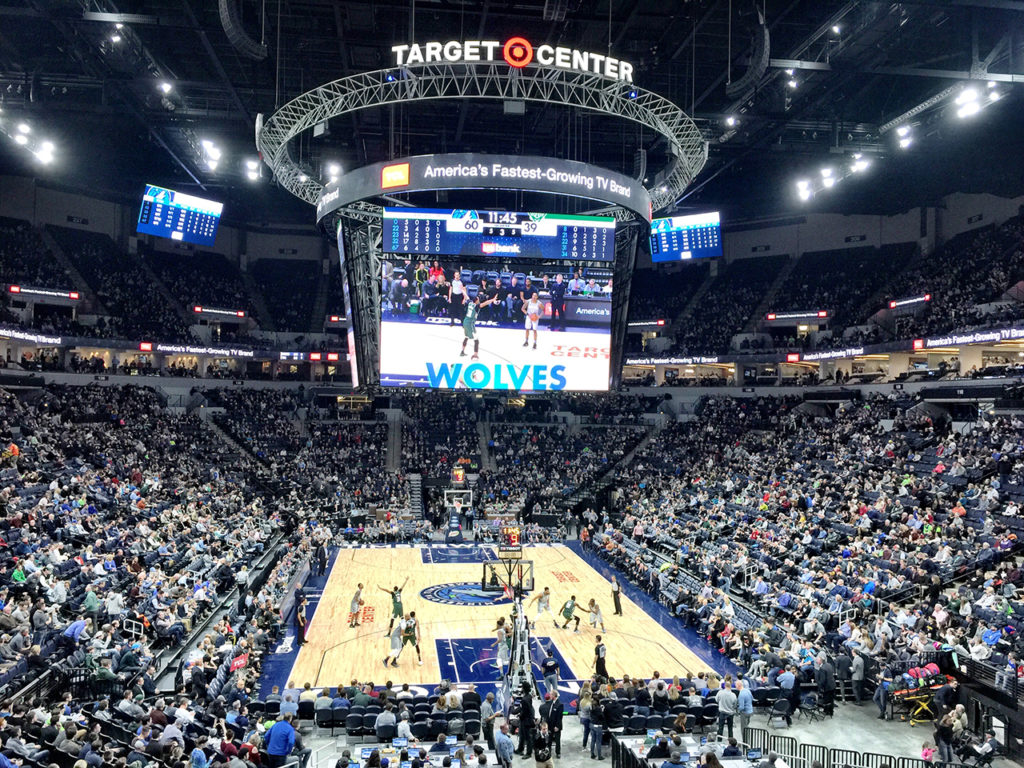
Baseball great Alex Rodriguez, thwarted in his attempt to buy the New York Mets last year, is teaming up with billionaire Marc Lore to begin the process of buying the NBA’s Minnesota Timberwolves and the WNBA’s Minnesota Lynx.
The pair are at the beginning of the process of buying the Timberwolves and Lynx, signing an exclusive letter of intent to purchase the basketball franchises from Glen Taylor. That the Timberwolves were on the market was hardly a secret–Taylor went public with his desire to sell his basketball operations in July 2020, along with some conditions of a sale, including no move of the team. At that time it was recorded that Taylor was expecting $1.5 billion for the basketball operations, and it was reported that the sale price ended up being–surprise!–$1.5 billion. Actually, not much of a surprise: when Ryan Smith purchased the Utah Jazz in 2020, the purchase price was $1.66 billion, but that included Vivint Arena and a Triple-A baseball team.
Taylor bought the T-Wolves for $88 million in 1994 from original owners Marv Wolfenson and Harvey Ratner, adding the Lynx in 1999 and working with state and city officials on a Target Center renovation.
The process of buying the team was quick: a letter of intent was signed yesterday at Taylor’s Florida home after a weeks’ worth of negotiations. Taylor will run the team as controlling owner through 2023, with Rodriguez and Lore acting as limited partners initially.
For Rodriguez and Lore, buying the Timberwolves gives A-Rod the first purchase of a major sports franchise. He was linked to one of the groups seeking to purchase the New York Mets in 2020, a bid that also included his then-flame, Jennifer Lopez. (No, we don’t know their current relationship status.) Steve Cohen ended up buying the Mets and some other assets for $2.6 billion, but Rodriguez’s group had a very clear vision for the Mets: leveraging the real estate around Citi Field to develop an entertainment district and build up the star power within the ballpark. That game plan is unlikely to be implemented with the Timberwolves: Target Center is basically landlocked and shared a neighborhood with Target Field, First Avenue, smaller entrainment venues and plenty of bars and restaurants. In addition, while Taylor says he’ll include language to keep the T-Wolves in Minnesota, it may not be totally enforceable, says the Minneapolis Star-Tribune:
“They will keep the team here, yes. We will put it in the agreement,” Taylor said. “At this point we have a letter of intent, but when we make up the contract we’ll put that in there. That’s no problem. That won’t be a problem.”
Legal observers in July told the Star Tribune such language in a potential deal would be tricky to enforce and would have to avoid being overly punitive in the case of a move for it to hold up in court.
The only penalty currently in place a group would have in moving the Wolves is the breaking of the lease with the city of Minneapolis over the use of Target Center. The lease lasts until 2035 and carries a $50 million penalty for breaking the lease, a drop in the bucket compared to the franchise’s sale price.
With Seattle and Las Vegas openly seeking teams and the Toronto Raptors’ tenure in Tampa deemed a success, there will surely be some financial analyses regarding a team move–but with Taylor controlling the T-Wolves through 2023, that talk will be largely moot for now.
“We look forward to entering this phase of the process with Glen Taylor,” Rodriguez said in a statement to ESPN. “Our respect for him and the legacy he has built lays an amazing foundation for what is to come. We are excited by the prospect of getting to know the Timberwolves organization.”
RELATED STORIES: Timberwolves sale may overperform market; T-Wolves hit the market; no move allowed; A New Target Center? Mostly

